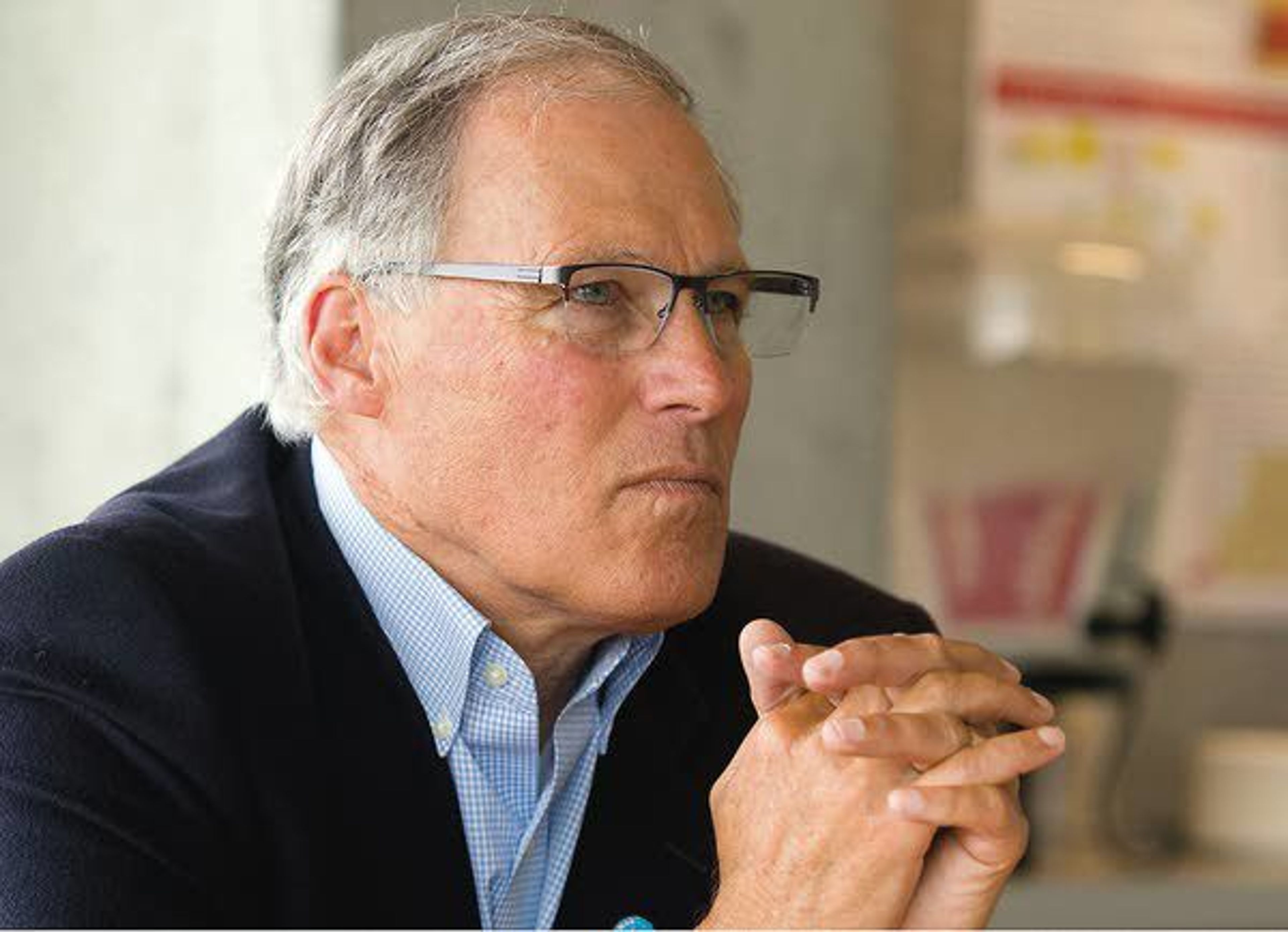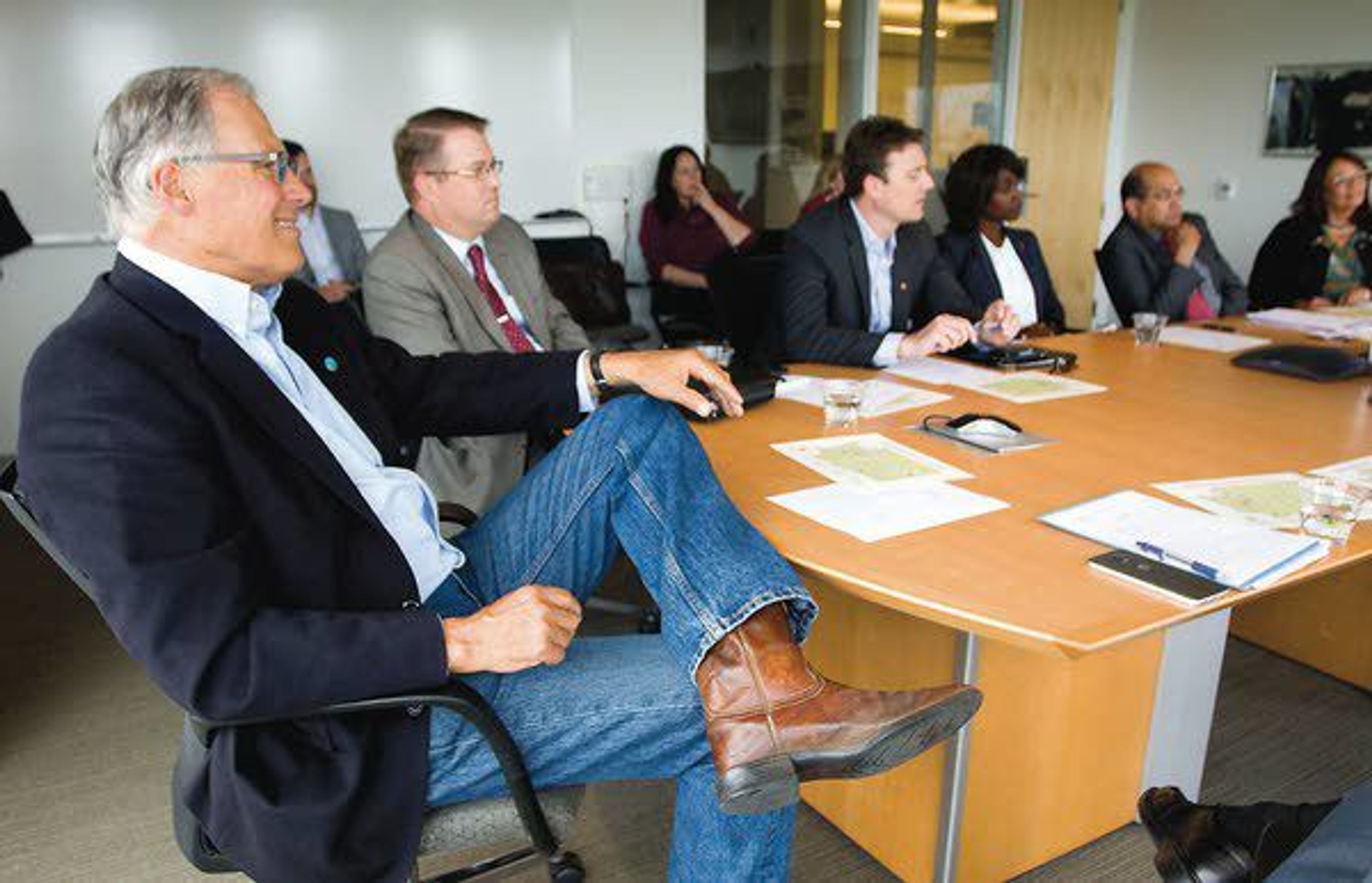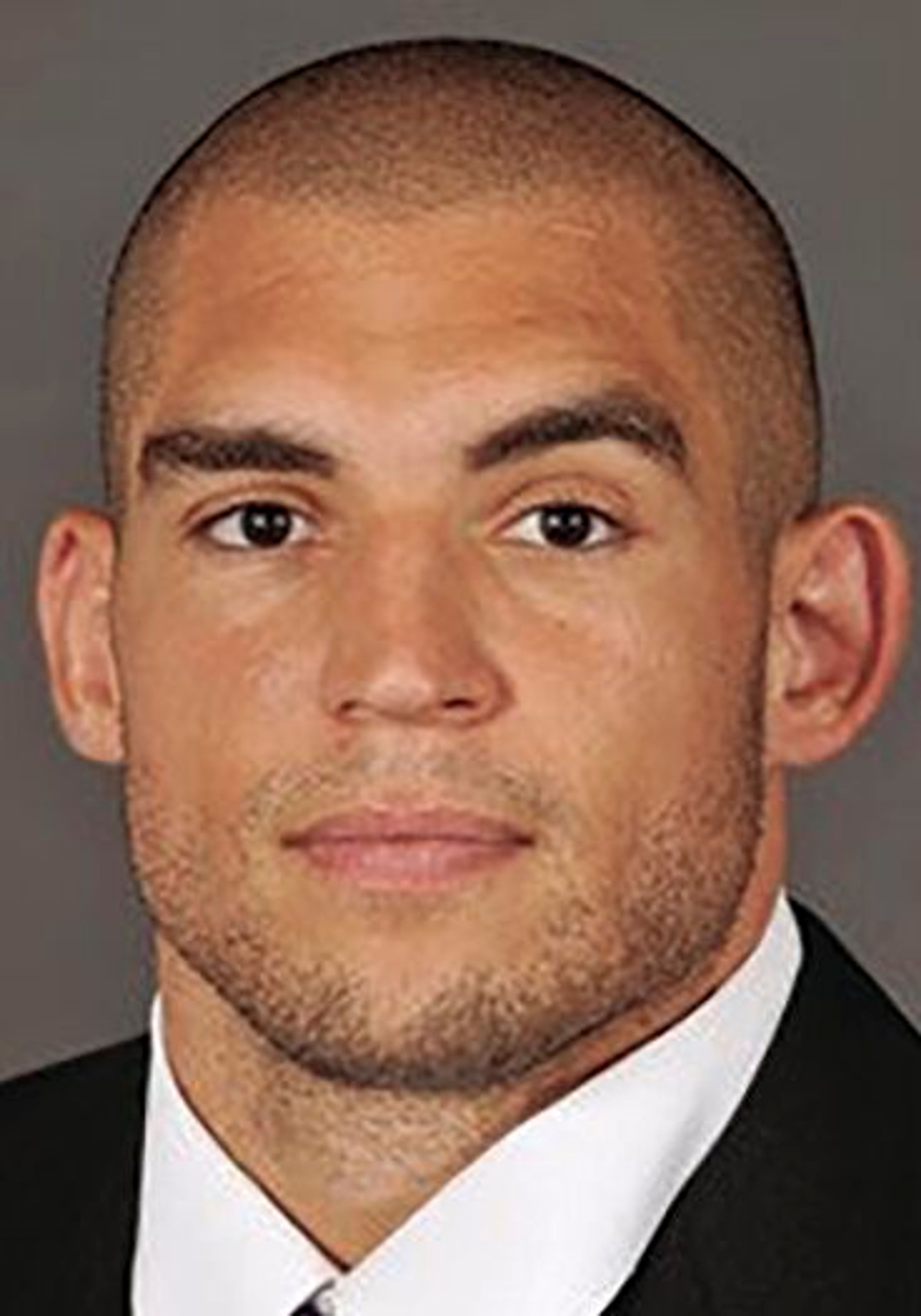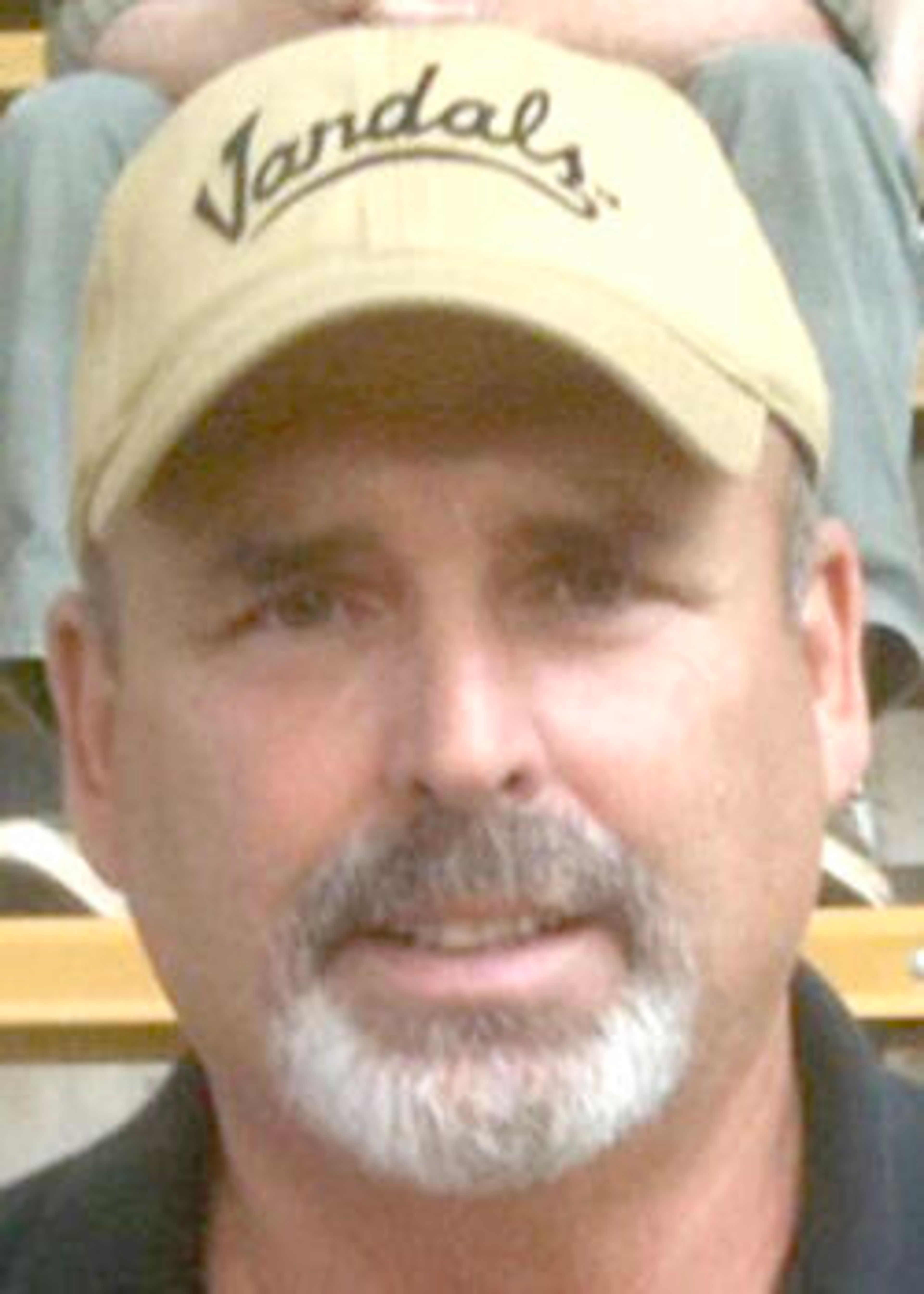Inslee talks broadband at WSU
Governor says rural areas could benefit from greater access
Washington state Gov. Jay Inslee discussed with Pullman and Washington State University leaders how increased access to broadband in rural areas could lead to economic growth for those areas during a roundtable meeting Wednesday at WSU.
The meeting was part of a three-day tour across the state for Inslee to discuss legislation adopted in Washington over the past six months. He said he hoped the meetings could also encourage discussion about broadband needs in rural areas and help to gain support for future legislation to address the issue.
Sasi Pillay, vice president for information technology services and chief information officer at WSU, told Inslee during the meeting the lack of broadband access in rural areas has become an issue of equality in Washington. Without access to reliable, high-speed and affordable broadband, those in rural areas are not given equal opportunity.
He said with increased broadband, rural residents can gain better access to basic health care and are afforded opportunities to pursue higher education in their local communities, just as those in metropolitan areas are able to do.
Luisita Francis, the assistant dean of community engagement at Elson S. Floyd College of Medicine, also touched on rural health care, saying many rural residents must travel to receive advanced health care because often medical professionals choose to practice in more densely populated areas, Francis said. With telehealth and online care, patients in rural areas could consult physicians, pharmacists and even psychiatrists without having to travel, she said. It may even encourage more medical professionals to move to rural areas because they could continue consulting in larger areas through the use of broadband.
Dave Cillay, vice president for academic outreach and innovation at WSU, said a greater access to broadband would also expand the number of students using the university's online courses. He said a student's geographical location should not prevent that person from pursuing an education.
Cillay said the university provides courses for 23 different degrees and plans to add 40 more within the next five years. To accomplish that goal, an increase in broadband across the state is necessary.
Katie Short can be reached at (208) 883-4633, or by email to kshort@dnews.com.









